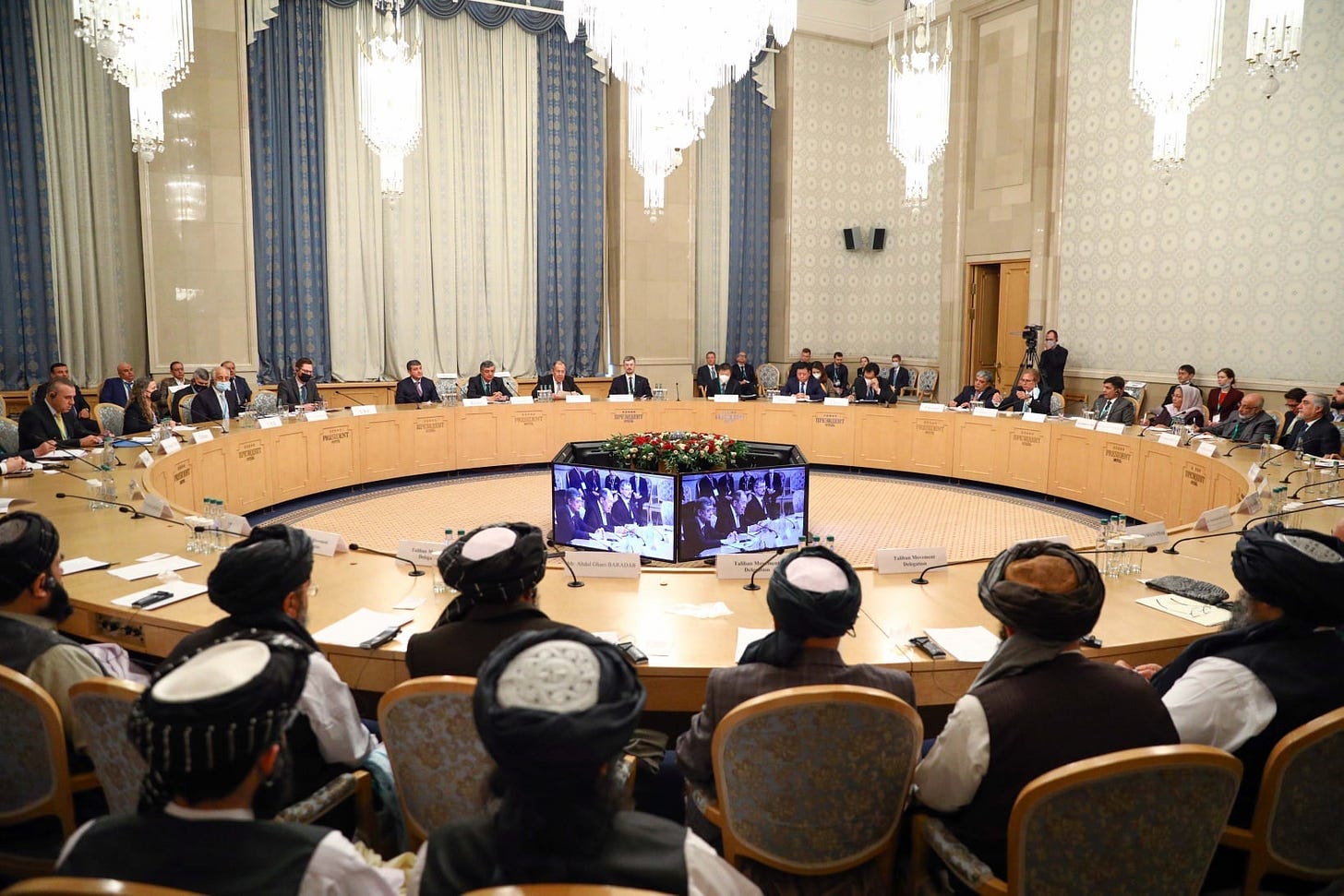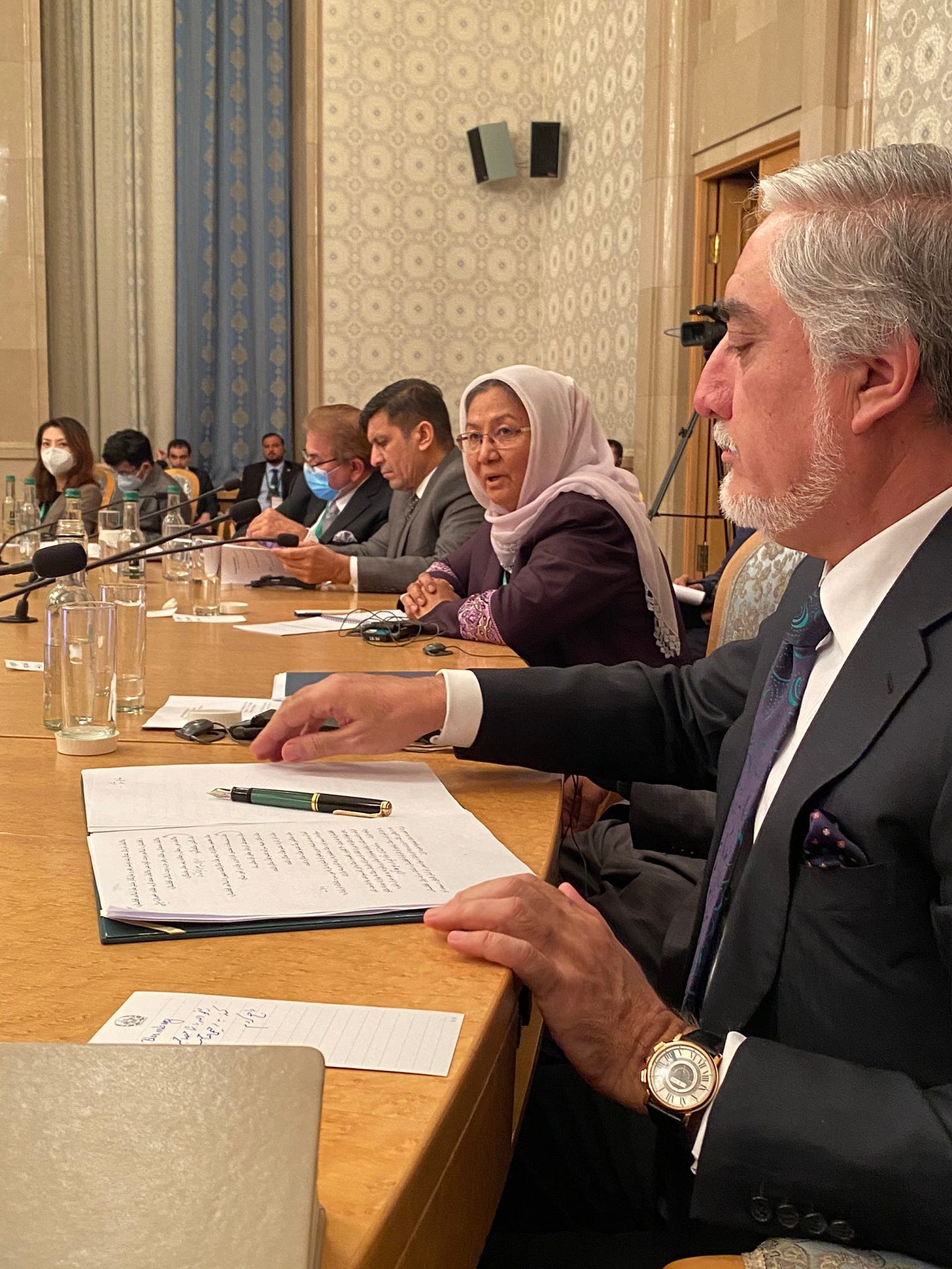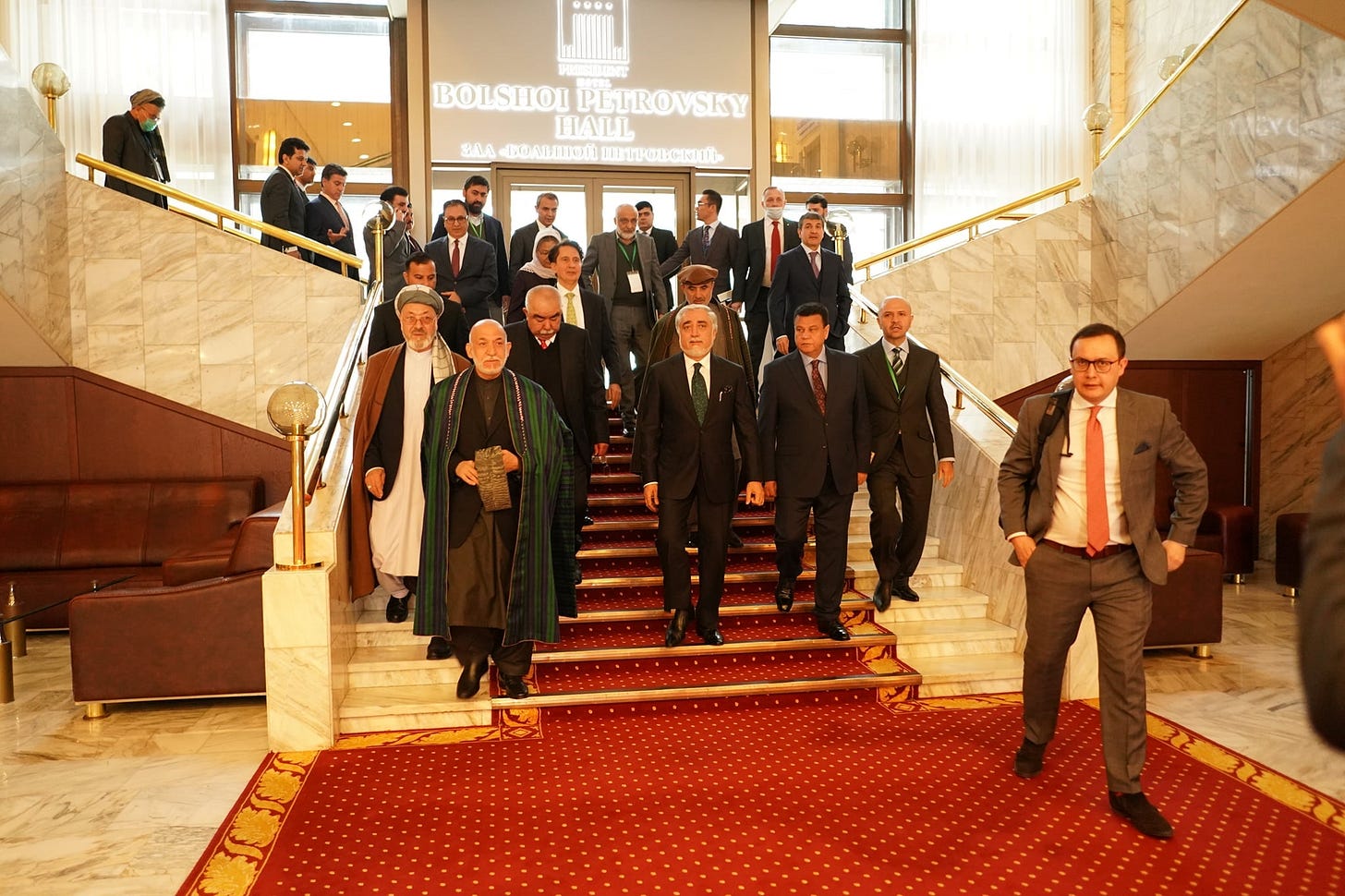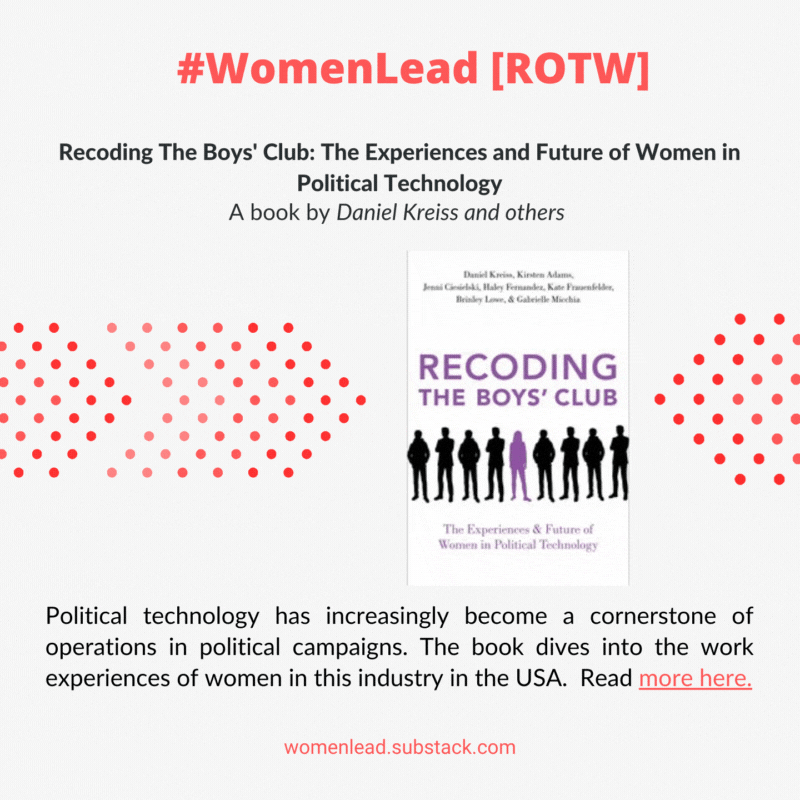‘We weren't part of the war, can certainly contribute to peace,’ says only woman member in critical Afghanistan summit, and other stories
#WomenLead (Issue 43): Your weekly round-up on women in politics
Hello, and welcome to Issue 43!
We hope you enjoy reading the #WomenLead newsletter, and find value in it. We’re always trying to make it more engaging, interesting and relevant for you, so please do share feedback and ideas, whenever you have some time.
We know newsletters are not designed for the kind of instant and (almost impulsive) engagement that social media offers with all its likes, comments, retweets and stories. But we do love to hear back from you, so drop in a word whenever you’d like to say hi. You can also keep in touch on Twitter, if you find the platform more convenient.
In this week’s edition, we bring you updates from Ireland and the African continent, as well as a spotlight on Afghanistan, which is inching fast towards the deadline of the complete withdrawal of US and NATO troops. And of course, there are reading and resource recommendations too!
In case you missed last week’s edition (about Indian politician Lathika Subhash’s solemn but spectacular protest on being denied a party ticket), you can (and must) read it here.
Quick Updates
Last week, one of Ireland’s most prominent newspapers published a cartoon depicting Mary Lou McDonald, the leader of the Opposition in the lower house of Parliament, as a witch stirring a cauldron. The reason was McDonald’s criticism of Deputy Prime Minister Leo Varadkar over a criminal investigation he is facing (she has sought his resignation).
The cartoon appeared in The Sunday Independent with an opinion piece on McDonald’s party’s “propaganda” against Varadkar. Several Irish politicians, including Varadkar himself, have criticised the clear sexism in the cartoon. As fellow parliamentarian Neasa Hourigan put it:
“Depicting female politicians as witches is another way of trying to force us back into a box. We're shrill, malign, emotional etc. This undertone is present in the national media regularly (the cartoon today just a very blatant and disappointing example).”
The National Women’s Council of Ireland said the cartoon was “not an acceptable way to depict any woman in politics”, reported The Journal. Meanwhile, a collection of letters to the editor published by The Sunday Independent showed support from readers for the cartoon. The publisher said offending people was not the intention, but said they encouraged “the formulation of strong, sharp opinions in words, images and illustrations”.
McDonald responded on Twitter saying:
A new report by European think-tank International Institute for Democracy and Electoral Assistance has found that women make up only 24 percent of all parliament seats in Africa. This is up from 9 percent in 2000, but the progress is slow. For the 19 countries with local government data available, women had a mere 21 percent share among the councillors, the report found.
The overall number is slightly smaller than the global average of 26 percent, and varies from 6 percent in Nigeria to 61 percent in Rwanda (the highest in the world). The slow progress could make it hard to meet a UN development goal to achieve equal opportunities in political decision making by 2030. Former Malawi President Joyce Banda wrote in the report’s foreword:
"This global agenda to be achieved by 2030 will remain a dream if Africa does not change its systems, practices, and policies to ensure that more women sit on the political decision-making table.”
Spotlight: AFGHANISTAN
On March 18, key stakeholders met in Moscow with the aim to give a push to the peace-building process in Afghanistan. This was the first of three such conferences planned in the run-up to May 1, the deadline for the full withdrawal of American and NATO troops from Afghanistan.

For a transition that is going to have serious repercussions for women’s rights in the country (remember Afghanistan under the Taliban, anyone?), women’s voices were conspicuous by their near absence at the conference.
Habiba Sarabi, a politician and human rights activist, was the only woman at the discussion table. She was part of the twelve-member delegation of the Afghan government. Participants were invited by Russia, based on recommendations from the Afghan government and the High Council for National Reconciliation.

At the Moscow summit, Sarabi asked why she should be the only woman in the room. “We have not been part of the war, we can certainly contribute to peace,” she added. She also said that 51 percent of the population should not be ignored, and that she hoped the hosts of these summits would take note for the future.
The lack of women’s representation drew widespread criticism. Human Rights Watch issued a statement saying, “Afghanistan’s government and its international partners were failing in their obligation to ensure that Afghan women are full participants in all peace processes.”
Speaking to Arab News later, Sarabi said she was deeply surprised to learn that she was the only woman in the delegation. Without the participation of women, there will be no genuine peace, she added. She also told the publication that she had complained directly to the Russian hosts for not inviting more women.
And what did the hosts say in response?
She quoted them as saying: “You talk so much as the sole woman in the room; imagine what would have happened should there have been more women.” (!!!)

The Afghan government and the Taliban weren’t the only ones contributing to the lack of representation of women at the conference. Fawzia Koofi, Afghan MP and who has also been part of the peace negotiations, observed that even other countries at the talks in Moscow did not have any women, and these were “our allies...our friends and our supporters of peace”. It is an international phenomenon to undermine, ignore and deny women participation in such a process like peace and security,” she added.
The summit included representatives from the USA, Russia, China and Pakistan.
“I think regional countries need to engage and involve more women to set an example for the Taliban that it is ok to include women,” Koofi added. She told Arab News that the approach of world powers had unfortunately been tokenistic, and if we have to change things, then these powers will also have to take responsibility for they have “long counted on factional and traditional leaders” to finalise the participant lists.
In May 2020, when the first edition of this newsletter was published, we wrote about the missing women in Afghan politics. That was when President Ashraf Ghani’s spokesperson had tweeted a picture of a meeting, an attempt by the government to address an ongoing political crisis. The picture showed 12 members - all men - after which the government was criticised for not including women in important political forums.
Almost a year down the line, one would hope things would be different. But alas!
Reflections & Reads
Read | ‘You’re questioning the PM and this little face bops up to you’: The women MPs who juggled childcare and politics in the pandemic - Maya Oppenheim in The Independent
Watch | What we need, what we want: Politicians from Maldives, Malaysia, Mexico and Germany reflect on how to improve women’s participation in political parties
Read | How Mamata Banerjee’s party broke the glass ceiling for women in politics in India’s West Bengal - Gilles Verniers and Maya Mirchandani in Article 14
That’s a wrap for this week! Liked reading this issue? Show some 💖 and hit the like button. If you find this newsletter worthwhile, help us reach more readers by sharing this newsletter on your social media platforms and with your friends. And do tag us on Twitter when you do so :) We’ll see you next weekend with Issue 44!





